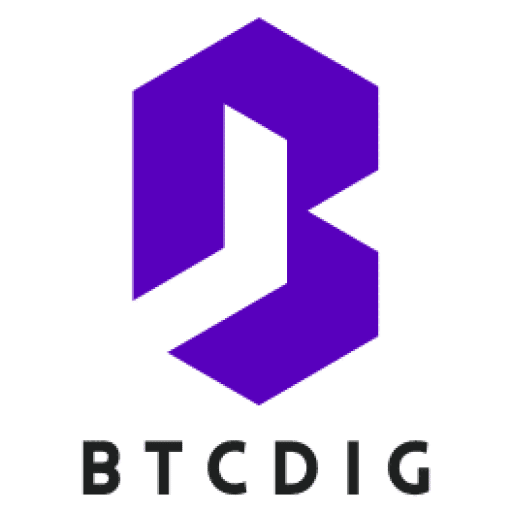Market research is an essential tool for any business looking to succeed in the competitive landscape. It provides a wealth of information that can help you better understand your target audience, refine your product or service, and optimize your marketing strategies. But how does a UK business conduct effective online market research? What are the best practices to follow? This comprehensive guide will walk you through the process, highlighting key steps and strategies to get the most out of your research efforts.
Recognizing the Importance of Market Research
Before diving into the how-to of online market research, it’s vital to understand why it’s so crucial for your business success. Market research can bring numerous benefits to your business, but it’s not always the simplest task to tackle.
A lire également : How Can UK Specialty Food Retailers Use Subscription Boxes to Increase Revenue?
Firstly, research allows you to understand your customers’ wants and needs. By conducting surveys and collecting data online, you can gain insights into what your customers value most in your product or service. This understanding can guide your business in developing new products or improving existing ones to meet customers’ expectations.
Additionally, market research can help identify market trends and competitive analysis. With the online world changing at a rapid pace, keeping up with trends is more critical than ever. Market research can shed light on what’s popular now and predict what will be popular in the future.
A lire également : What Are the Best Low-Carbon Technologies for UK Manufacturing SMEs?
Developing a Clear Research Plan
The first step in conducting online market research is to develop a clear and concise research plan. This includes defining your research objectives, identifying your target audience, and outlining the data collection methods you will use.
Your research objectives should detail what you want to learn from your research. Are you trying to understand your customers’ buying habits? Do you want to identify potential barriers to growth? Be as specific as possible.
Identifying your target audience is also crucial. Knowing who you’re researching will help you design more effective surveys and choose the best platforms for data collection.
Finally, outline the data collection methods you will use. Online surveys are a commonly used tool, but you might also consider online focus groups, social media analysis, or secondary research using existing online data.
Utilizing Online Surveys Effectively
Online surveys are a popular method for conducting online market research. They offer a quick and cost-effective way to gather large amounts of data. However, to ensure they are effective, they need to be designed correctly.
When designing your online survey, consider your target audience. What language and tone will resonate with them? What types of questions will they respond best to?
Also, consider the length of your survey. If it’s too long, respondents may lose interest and not complete it. On the other hand, if it’s too short, you might not gather the detailed information you need.
Remember to include a mix of question types, including multiple choice, scale, and open-ended questions. This variety will allow for more comprehensive responses and give you a fuller understanding of your audience.
Incorporating Secondary Research
While primary data collection methods like surveys are essential, don’t overlook the value of secondary research. This involves analyzing data that already exists, such as online customer reviews or social media comments.
Secondary research can provide valuable insights into customer sentiment and opinions. It can also help identify trends and patterns that may not be apparent in survey data alone.
However, use secondary data cautiously. Not all data found online is reliable or accurate. Always cross-check information from multiple sources and consider the context in which it was posted.
Analysing and Interpreting the Data
After collecting your data, the next step is to analyse and interpret it. This is arguably the most critical part of the market research process, as it’s where you extract meaningful insights that will guide your business decisions.
Start by looking for patterns and trends in your data. Are there common themes in the responses to your survey questions? Do certain customer demographics exhibit similar buying habits?
Next, consider how these findings relate to your research objectives. What do they tell you about your customers’ needs and wants? How can they inform your product development or marketing strategies?
Remember, the goal of market research isn’t just to collect data. It’s to understand this data and use it to make informed business decisions.
In conclusion, online market research is a powerful tool for UK businesses. By following these best practices, you can gain valuable insights into your target audience, stay ahead of market trends, and make strategic decisions that will improve your business performance.
Utilising Social Media for Market Research
Social media provides a treasure trove of valuable data for businesses looking to conduct market research. It offers a platform where consumers freely share their thoughts, opinions, and experiences related to various products, services, brands, and industries. Using social media as a tool for market research is, therefore, a smart move for UK businesses.
Analyzing social media comments and discussions can provide insights into your target market’s sentiments about your product or service. It can also reveal your brand’s perception and how it stacks up against the competition. Social media can offer a wealth of qualitative data that can complement the quantitative data obtained from online surveys and other primary research methods.
To use social media effectively for market research, you should regularly monitor your brand’s mentions and the conversations surrounding your industry. Tools like Google Alerts, Hootsuite, and Social Mention could assist with this. They can alert you to new social media posts mentioning your brand or relevant keywords.
After identifying these conversations, you should then analyse them to gain insights. This could involve categorizing comments into positive, negative, and neutral sentiments or identifying common themes and trends in the discussions.
Social media can provide a real-time snapshot of consumer attitudes and behaviours. However, it’s essential to remember that social media users might not be entirely representative of your target audience. Therefore, combining social media analysis with other research methods will provide a more holistic understanding of your target market.
Organising and Conducting Focus Groups
Focus groups are another valuable tool in the market research arsenal. They involve a small group of people who represent your target market and a moderator leading a discussion about your product or service.
Organising and conducting online focus groups can provide in-depth insights into your target audience’s opinions, preferences, and behaviours. They can also enable you to test new product ideas, understand customer satisfaction levels, or explore the reasons behind specific buying habits.
To organise a focus group, you first need to identify who will be involved. The participants should be a representative sample of your target audience. This means they should reflect the demographic characteristics, behaviours, and attitudes of the people you’re aiming your products or services at.
Next, you need to plan your discussion topics. What questions will you ask the group? These should be open-ended to allow for detailed responses and should directly relate to your research objectives. It could be about gauging reactions to a new product idea or understanding customer satisfaction levels with a current product or service.
As you conduct your focus group, it’s crucial to foster an open and non-judgemental atmosphere. This will encourage participants to share their honest thoughts and opinions. After the session, analyse the responses and identify any patterns, themes, or trends that emerge.
Remember, while focus groups provide qualitative insights, these findings are based on a small sample size. Therefore, it’s best to use focus groups in conjunction with other research methods for a more comprehensive view of your target market.
Conclusion
Online market research is an invaluable tool for UK businesses. It offers a means to understand your target audience, identify market trends, and guide product development and marketing strategies. By utilising online surveys, social media analysis, secondary research, and focus groups, you can gather a wealth of data that can inform your business decisions.
Remember, the key to effective market research is to have clear objectives, know your target audience, utilize a mix of research methods, and analyse the data meticulously. By adhering to these best practices, you can ensure that your online market research efforts will yield valuable insights that can drive your business forward.






